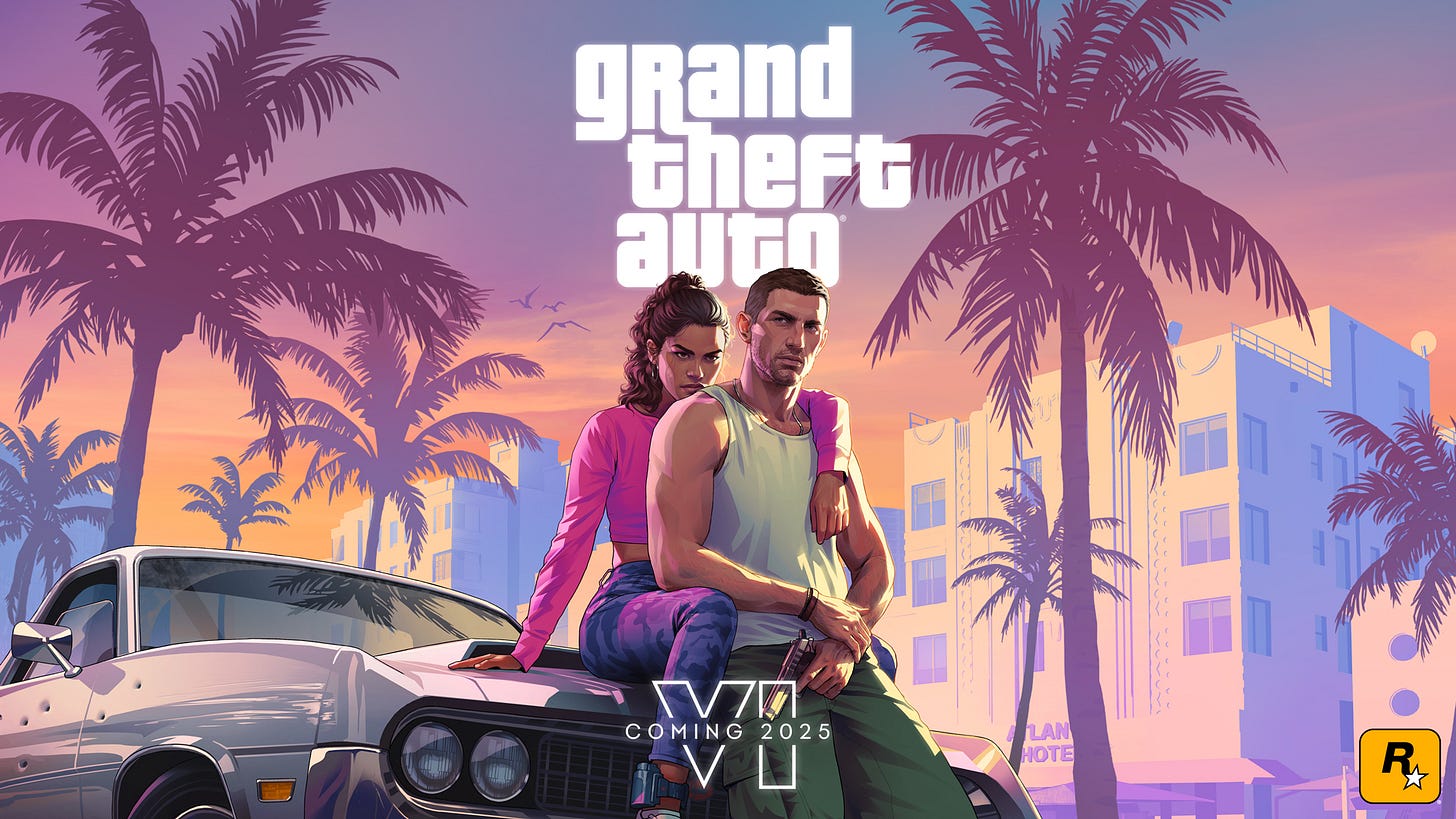The Biggest Entertainment Release in the World Just Got Delayed — And Everyone in Culture Should Be Paying Attention
GTA VI isn’t just a game—it’s a centre of gravity. When it moves, studios, streamers, and strategists should too.
Finally, Rockstar Games announced that Grand Theft Auto VI—the most anticipated gaming release of the decade—will now launch in May 2026, not fall 2025. Investors panicked. Take-Two lost billions in value. And within hours, major game studios began adjusting their release calendars, scrambling to avoid what industry insiders know all too well: the black hole release.
A black hole release isn’t just a hit—it’s a gravitational anomaly. It doesn’t merely outperform competitors; it warps the surrounding cultural space-time, sucking up attention, media coverage, influencer bandwidth, and fan energy for weeks, even months. It’s not safe to launch near one. You’ll get obliterated. Swiftly. Silently. Spectacularly.
The games industry gets this.
Studios like EA, Ubisoft, and Activision know the rules. You don’t drop anything near a GTA—not a DLC, not a beta, not even a dev blog if you can help it.
But here’s the twist:
Hollywood isn’t paying attention. Neither is the music industry. Or publishing. Or brands.
And in 2026, that’s going to be a problem.
Because to younger audiences—particularly Gen Z and below—there’s no such thing as a “video game” vs. a “movie” vs. a “show” vs. a “song.” Those are boomer taxonomies, useful only to people still organising iTunes libraries.
To them, content is content is content. It lives in the same feed. It competes for the same brain, the same minutes, the same eyeballs. And when GTA VI drops, it won’t just be competing with Call of Duty and Fortnite — it’ll be going head-to-head with Dune: Part VI, Drake’s annual feelings dump (you lost, get over it), House of the Dragon’s wigs and incest, MrBeast buying another orphanage for clicks, and whatever grayscale trauma-core miniseries is trotting out for next year’s Emmy bait.
This isn’t a story about the gaming industry.
It’s a story about how the rest of culture still doesn’t understand what it’s up against.
Today We’re Talking About:
The cultural detonation of Grand Theft Auto VI: Why its May 2026 release isn’t just a date change—it’s a gravitational reset for the entire entertainment ecosystem.
The black hole effect: How game studios are reshuffling slates to avoid being obliterated—and why Hollywood, music, and media aren’t moving fast enough.
The end of media categories: Why Gen Z doesn’t care whether something’s a game, a film, or a feed—and what that means for every brand trying to hold attention.
$8 billion in receipts and counting: GTA V has outsold Avatar, Endgame, and Titanic—combined—and yet games still get filed under “tech.”
What happens when content never ends: In a world of Twitch streams, mod economies, and infinite replay loops, launch day is just the beginning.
Today’s essay is just for paid subscribers.
The Biggest Launch in Entertainment History
Let’s get the numbers on the table.
Grand Theft Auto V has sold over 210 million copies, generating more than $8 billion USD since its 2013 release—more than Avatar, Titanic, and Avengers: Endgame combined (TweakTown).
The trailer for GTA VI, released in December 2023, pulled 475 million views across platforms in 24 hours. Not just more than any game trailer. More than any Hollywood teaser, K-pop drop, or Super Bowl ad in internet history (PC Gamer).
That’s not just viral. That’s geological.
We’ve simply never seen a product with this kind of pre-release gravitational pull:
A decade of player anticipation
A billion-dollar marketing runway
A built-in audience larger than most religions
And a media ecosystem (Twitch, Reddit, TikTok, modding, cosplay, lore theory) that will detonate the moment the game drops
And still, the broader culture machine—refuses to acknowledge it as competition.
Why? Because they’re still measuring cultural importance in formats:
Tickets sold
Nielsen ratings
Box office weekends
Prestige festivals
But GTA VI won’t play by those rules. It will collapse time, blur genre, and steal weeks of cognitive bandwidth from every adjacent industry.
This isn’t a tentpole. It’s a total eclipse.
And if your strategy still treats games as a separate category—or worse, a niche—then congratulations: you’re scheduling a summer blockbuster next to a black hole and hoping gravity isn’t real.
A New Framework for Scale
It’s time to stop comparing games to films using legacy units like box office revenue or launch-weekend buzz. Games like GTA VI occupy a different media class entirely.
Even Twitch alone has logged over 381 million hours of GTA V watch time (SullyGnome) — to say nothing of YouTube walkthroughs, mods, fan fiction, Reddit lore threads, or in-game performances.
In the attention economy, time is the real currency — and GTA is printing it in denominations most formats can’t touch.
Media Blind Spots and Prestige Bias
There’s a reason GTA VI hasn’t received its cultural coronation.




